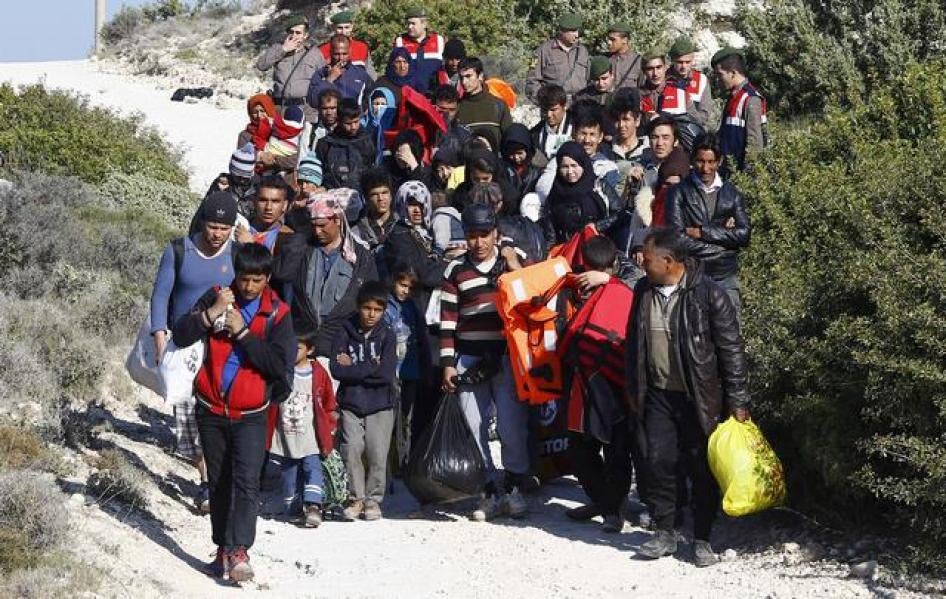Yesterday, the European Union and Turkey reached an agreement designed to curb the flow of migrants to Europe and to Turkey. But the deal carries huge risks for Turkey, the EU, and above all refugees and asylum seekers.
Under the deal, Turkey will receive €3 billion in much needed funds to assist Syrian refugees, as well as visa-free travel for Turkish citizens in most EU countries. It looks as though talks on Turkey’s possible EU membership may also be revived.
It’s clear that some European officials see a migration agreement with Turkey as the silver bullet to resolve Europe’s refugee crisis. At first glance, it isn’t hard to see why. Turkey is the main transit route into the EU. This year, more than 700,000 asylum seekers and migrants crossed from Turkey into Greece, the vast majority crossing the Aegean Sea in unstable rubber boats.
The reality, however, is more complex. Turkey may be able to reduce the flow of asylum seekers under the action plan. But it is unclear how preventing migration to the EU can be achieved without impeding access to asylum for the 84 percent of people from refugee-producing countries who have reached EU shores this year.
Asylum seekers fleeing most countries today cannot obtain effective refugee protection in Turkey. Syrians are given only temporary protection, and Afghans and Iraqis don’t receive even that. Preventing people from travelling to the EU will deny protection to many people who need it. Given the Turkish police force’s reputation for using excessive force, there is a risk that Turkey will use abusive tactics to prevent people from reaching its EU neighbors Greece and Bulgaria.
Faced with the prospect of warehousing ever-larger numbers of asylum-seekers and migrants, Turkey will likely continue its border restrictions, even pushing people back to Syria and may tighten its other borders, like that with Iran. This may be avoided if EU governments greatly increase the numbers of refugees they are willing to resettle or relocate from Turkey. Germany is proposing such a move, but the limited progress in relocating asylum seekers inside the EU cast doubt on the likelihood it will succeed.
Without such greatly expanded safe and legal routes to reach Europe, people are likely to throw themselves on the mercy of unscrupulous boat smugglers to reach the EU. Most Syrians, Iraqis and others who succeed in reaching the EU are unlikely to be returned to Turkey – even with the new readmission agreement in place.
The revived EU membership talks could create a much-needed opportunity for Europe’s officials to press Turkey on its rights record. But absence of a reference to human rights in the EU-Turkey summit joint statement yesterday, and recent remarks from European Commission President Jean-Claude Juncker that the EU should not “harp” on Turkey’s rights record, do not bode well.
There is plenty of space for EU efforts to help Turkey create a functioning asylum system and support its Syrian refugees in a way that upholds Europe’s values. But the current deal risks exacerbating abusive Turkish border policies, could end up trapping people in Syria, and may have little effect on smuggling people into the EU.










